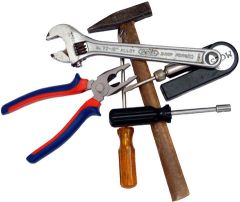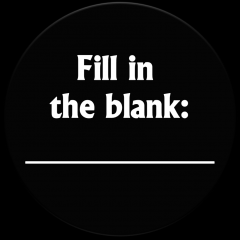![]()
![]()
![]()
Use LEFT and RIGHT arrow keys to navigate between flashcards;
Use UP and DOWN arrow keys to flip the card;
H to show hint;
A reads text to speech;
21 Cards in this Set
- Front
- Back
|
Name the noun declension matching the descriptions.
Name the noun declension matching the questions. Name the noun declension matching the picture. |
Zaczynamy!
|
|
|
Określa cel, kierunek czynności.
Names the recipient or object of an action. np. Kup mi coś. |
CELOWNIK- Komu? Czemu?
[Dative case] Kup [mi] coś. |
|
|
Często określa narzędzie potrzebne do wykonywania czynności.
Often names the tools needed to complete the action of the sentence. np. Jedziemy tam moim samochodem. |
NARZĘDNIK- Kim? Czym?
[Instrumental case] Jedziemy tam [moim samochodem.] |
|
|
Uzupełnia, dopełnia informacje o czyności.
Used to show possession, and after many prepositions (przyimki). np. To jest dom mojego przyjaciela. |
DOPEŁNIACZ- Kogo? Czego? Czyj?
[Genitive Case] To jest dom [mojego przyjaciela.] |
|
|
Używamy aby kogoś przedstawić; nazywa, obdarza mianem, czyli nazwa.
Used to introduce the main subject of sentence; the person or thing who does the action or is described. np. Maria kocha Jana. |
MIANOWNIK- Kto? Co?
[Nominative case] np. [Maria] kocha Jana. |
|
|
Określa miejsce lub obiekt czynności.
Tells us the object or place of an action. Often used after prepositions w, na, o, po, przy. np. On jest teraz w domu. |
MIEJSCOWNIK- (w,o) Kim? Czym?
[Locative case] np. On jest teraz w[ domu.] |
|
|
Kogo? Czego? Czyj?
|
DOPEŁNIACZ
Uzupełnia, dopełnia informacje o czyności. Gives information about the action. |
|
|
Komu? Czemu?
|
CELOWNIK
Określa cel, kierunek czynności. Tells us the target of an action. |
|
|
Kogo? Co?
|
BIERNIK
Nazywa kogoś (coś) kto biernie poddaje się wykonywanej czynności Names the recipient of the action; the thing affected by the subject. |
|

|
WOŁACZ- O! [Vocative case]
Służy do tego, aby kogoś zawołać, poprosić, zwrócić się do kogoś. np. Mój[ kocie], to nie wolno wchodzić, siostro! |
|

|
NARZĘDNIK- Kim? Czym?
Często określa narzędzie potrzebne do wykonywania czynności. np. Julia ma zdjęcie [z kotem], z siostrą |
|

|
CELOWNIK- Komu? Czemu?
Określa cel, kierunek czynności. np. Daj [kotu] mleka, siostrze |
|

|
BIERNIK- Kogo? Co?
Nazywa kogoś (coś) kto biernie poddaje się wykonywanej czynności. np. Mam ślicznego [kota], siostrę |
|

|
MIEJSCOWNIK- (w,o) Kim? Czym?)
Określa miejsce lub obiekt czynności. np. Opowiem ci bajkę [o kocie]. Znalazłem [w siostrze] pryjaciela. |
|

|
MIANOWNIK- Kto? Co?
Używamy aby kogoś przedstawić; nazywa, obdarza mianem, czyli nazwa. np. To jest [kot.] Nazywam się [Khan.] To jest moja [siostra.] |
|

|
DOPEŁNIACZ- Kogo? Czego? Czyj?
Uzupełnia, dopełnia informacje o czyności. np. To jest coś [dla ciebie.] To jest koniec [pierwszej lekcji.] |
|
![[Olivia] jest w domu.](https://images.cram.com/images/upload-flashcards/69/10/94/2691094_m.jpg)
[Olivia] jest w domu.
|
MIANOWNIK- Kto? Co?
In this sentence, "Olivia" is the subject of the sentence; the doer of the action or the main focus. Remember "miana" means "name." |
|
|
Ona jest teraz w [domu].
|
MIEJSCOWNIK- (w,o) Kim? Czym?
The word "domu" tells us where (miejsce) the action is taking place. |
|
|
Piszę [nowym długopisem].
|
NARZĘDNIK- Kim? Czym?
|
|
|
Wchodzimy w [las].
|
BIERNIK- Kogo? Co?
In this sentence, "las" is the object affected passively by the action of the sentence, "wchodzimy." |
|
|
Zepsułem [ci] samochód.
|
CELOWNIK- Komu? Czemu?
In this sentence, "ci" is the target (cel) of the action, "zepsułem." |

